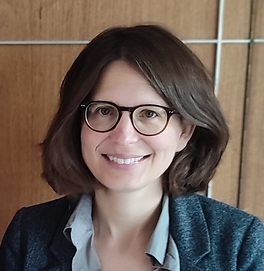Rostock Demographic Seminar Series
Parental Leave and Day-care Policy, Take-up Consequences and Changing Normative Beliefs: Evidence from two Survey Experiments
Pia Schober
Hybrid Presentation, May 23, 2023
Pia Schober from the University of Tübingen will talk about Parental leave and day-care policy, take-up consequences and changing normative beliefs.
Abstract
Family policies not only provide economic incentives but also convey normative assumptions about what is considered desirable or acceptable in paid work and family care. This presentation gives an overview of two studies on norm-setting effects of information related to parental leave and day-care policies. We conceptualize and empirical examine how priming with information on family policy entitlements and economic consequences of take-up may alter normative beliefs regarding the gender division of parental leave and paid work as well as daycare take-up in Germany. The theoretical framework builds on the concept of normative policy feedback effects (Soroka and Wlezien, 2010; Gangl and Ziefle, 2015) combined with social norm theory (Bicchieri, 2017) and human cognition theories (Petty and Cacioppo, 1986; Evans and Stanovich, 2013).
We implemented one survey experiment presenting respondents with different short evidence-based information primers on economic consequences of parental leave take-up in the German GESIS Panel and another information experiment on the day-care entitlement and economic consequences of maternal labour market interruptions in the German Family Panel pairfam. Interestingly, the first experiment shows that the priming effects on parental leave take-up norms of mothers and fathers depend strongly on relative earnings in couples and are mostly stronger among childless women and men than for parents. By contrast, the results of the second experiment suggest that priming respondents with information on day-care policy and long-term economic risks of maternal employment interruptions alter norms of day-care use and maternal working hours only among women. Overall, both experiments provide evidence that repeated exposure to brief media report-like information have the potential to alter gendered work-care norms.
About the Speaker

© Pia S. Schober
Since 2016, Pia Schober has been Full Professor of Sociology with a focus on micro sociology at the University of Tübingen. She graduated in Economics and Social Policy, and received her Ph.D. in Social Policy at the London School of Economics in 2009. Over the past few years, she has been the principal investigator of two DFG-funded projects on “Family policy information, gender ideologies and normative judgements of the gender division of labour” (2020-2023) and on “Parental gender socialization across diverse families” (2019-2023). Her main research interests are gender and social inequalities in employment and family work, childcare and child outcomes, family demography, family and early childhood education policy and longitudinal data analysis and methods of causal inference.
Online Registration
If you wish to participate, please register online by sending a message to info@demogr.mpg.de.